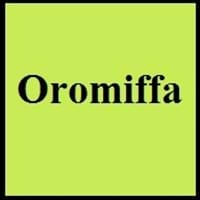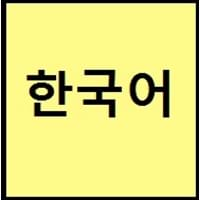Oromo and Korean
Countries
Ethiopia, Kenya
China, Jilin Province, North Korea, South Korea, Yanbian
National Language
Ethiopia
North Korea, South Korea
Second Language
Not spoken in any of the countries
Not spoken in any of the countries
Speaking Continents
Africa
Asia
Minority Language
Somalia
Japan, People's Republic of China, Russia, United States of America
Regulated By
Not Available
The National Institute of the Korean Language
Interesting Facts
- Oromo language is the third most spoken language in Africa.
- Oromo is most spoken language in Cushitic Family.
- Korean has borrowed words from English and Chinese.
- Korean has two counting systems. First, is based on Chinese characters and numbers are similar to Chinese numbers, and second counting system is from words unique to Korea.
Similar To
Somali Language
Chinese and Japanese languages
Derived From
Not Available
Not Available
Alphabets in
Oromo-Alphabets.jpg#200
Korean-Alphabets.jpg#200
Writing Direction
Not Available
Left-To-Right, Horizontal, Top-To-Bottom
Time Taken to Learn
Not Available
Hello
akkam
안녕하세요. (annyeonghaseyo.)
Thank You
Galatoomi
감사합니다 (gamsahabnida)
How Are You?
Attam jirta/jirtu?
어떻게 지내세요? (eotteohge jinaeseyo?)
Good Night
Nagayattii buli
안녕히 주무세요 (annyeonghi jumuseyo)
Good Evening
Akkam waarite
안녕하세요 (annyeonghaseyo.)
Good Afternoon
Attam oolte / ooltan
안녕하십니까 (annyeong hashimnikka)
Good Morning
Attam bulte/bultan
안녕히 주무셨어요 (An-yŏng-hi ju-mu-shŏ-ssŏ-yo)
Please
Maaloo
하십시오 (hasibsio)
Sorry
naa dhiisi
죄송합니다 (joesonghabnida)
Bye
Nagayattii!
안녕 (annyeong)
I Love You
Sin jaaladha
당신을 사랑합니다 (dangsin-eul salanghabnida)
Excuse Me
Maaloo na dabarsi
실례합니다 (sillyehabnida)
Where They Speak
Ethiopia, Kenya
South Korea
Dialect 2
Orma
Gyeongsang
Where They Speak
Kenya
South Korea
Where They Speak
Kenya
China, North Korea
How Many People Speak
Not Available
Native Name
Afaan Oromo
한국어 (조선말)
Alternative Names
Afaan Oromoo
Hanguk Mal, Hanguk Uh
German Name
Galla-Sprache
Koreanisch
Pronunciation
Not Available
Not Available
Origin
16
Before 1st century
Language Family
Afro-Asiatic Family
Koreanic Family
Subgroup
Cushitic
Not Available
Branch
Not Available
Not Available
Early Forms
No early forms
Old Korean, Middle Korean and Korean
Standard Forms
Afaan Oromo
Pluricentric Standard Korean, South Korean standard and North Korean standard
Signed Forms
Not Available
Korean Sign Language
Scope
Macrolanguage
Individual
ISO 639 6
Not Available
Not Available
Glottocode
nucl1736
kore1280
Linguasphere
No data available
45-AAA
Language Type
Living
Living
Language Linguistic Typology
Not Available
Subject-Object-Verb
Language Morphological Typology
Not Available
Agglutinative
All Oromo and Korean Dialects
Most languages have dialects where each dialect differ from other dialect with respect to grammar and vocabulary. Here you will get to know all Oromo and Korean dialects. Various dialects of Oromo and Korean language differ in their pronunciations and words. Dialects of Oromo are spoken in different Oromo Speaking Countries whereas Korean Dialects are spoken in different Korean speaking countries. Also the number of people speaking Oromo vs Korean Dialects varies from few thousands to many millions. Some of the Oromo dialects include: Borana, Orma. Korean dialects include: Jeju , Gyeongsang. Also learn about dialects in South American Languages and North American Languages.
Oromo and Korean Speaking population
Oromo and Korean speaking population is one of the factors based on which Oromo and Korean languages can be compared. The total count of Oromo and Korean Speaking population in percentage is also given. The percentage of people speaking Oromo language is 0.36 % whereas the percentage of people speaking Korean language is 1.14 %. When we compare the speaking population of any two languages we get to know which of two languages is more popular. Find more details about how many people speak Oromo and Korean on Oromo vs Korean where you will get native speakers, speaking population in percentage and native names.
Oromo and Korean Language Codes
Oromo and Korean language codes are used in those applications where using language names are tedious. Oromo and Korean Language Codes include all the international language codes, glottocodes and linguasphere.





